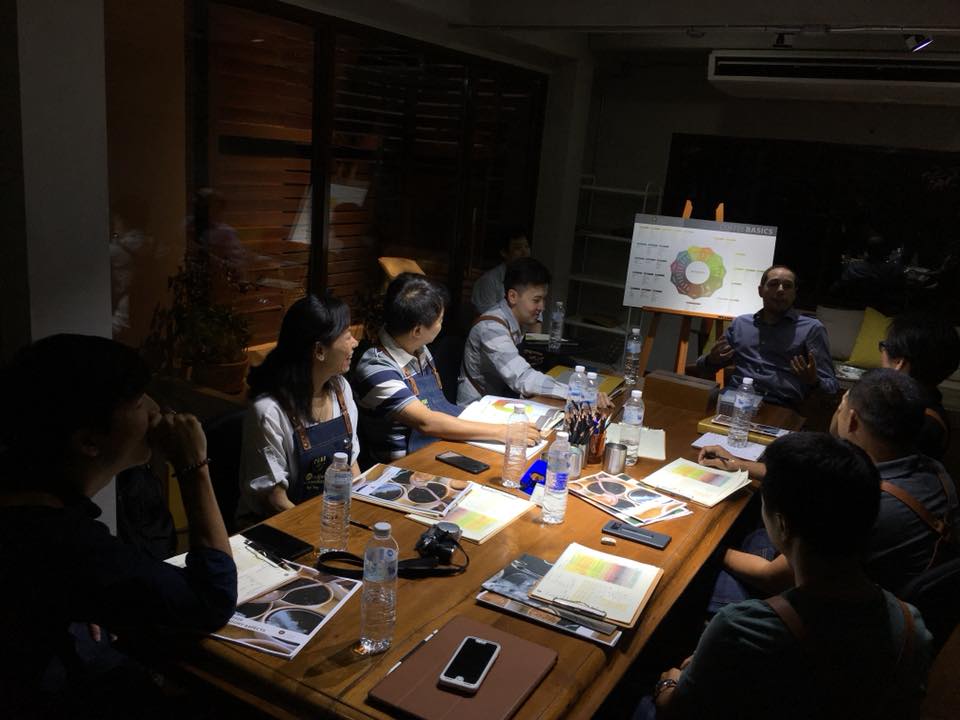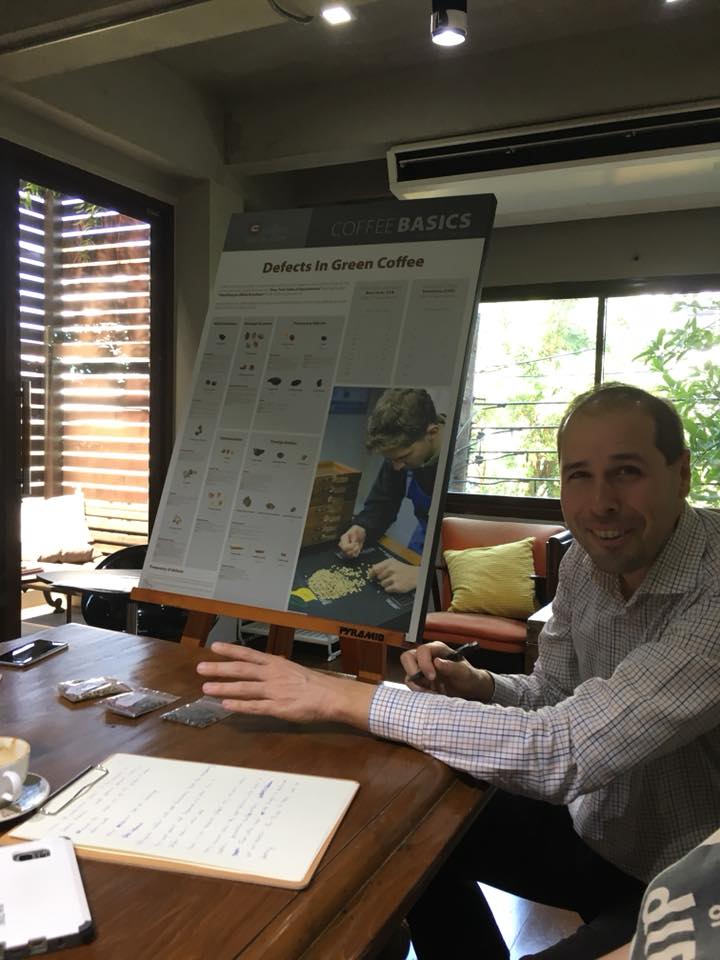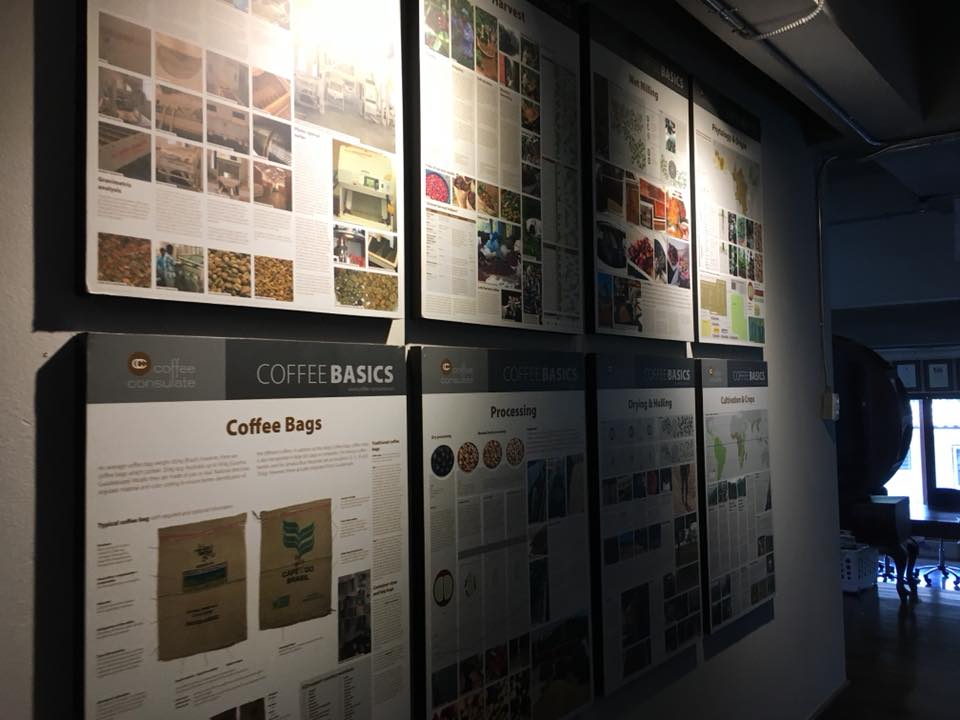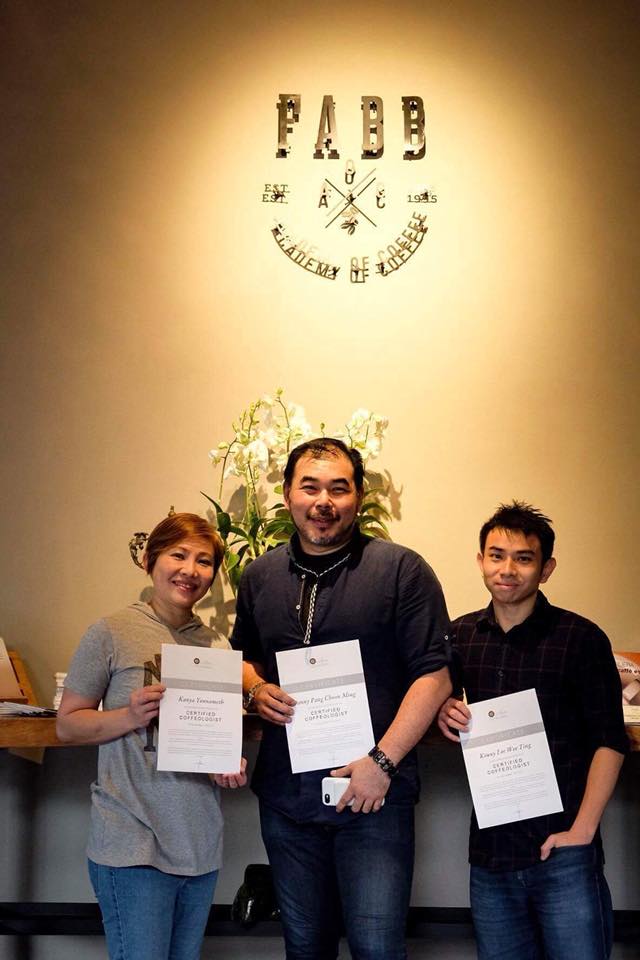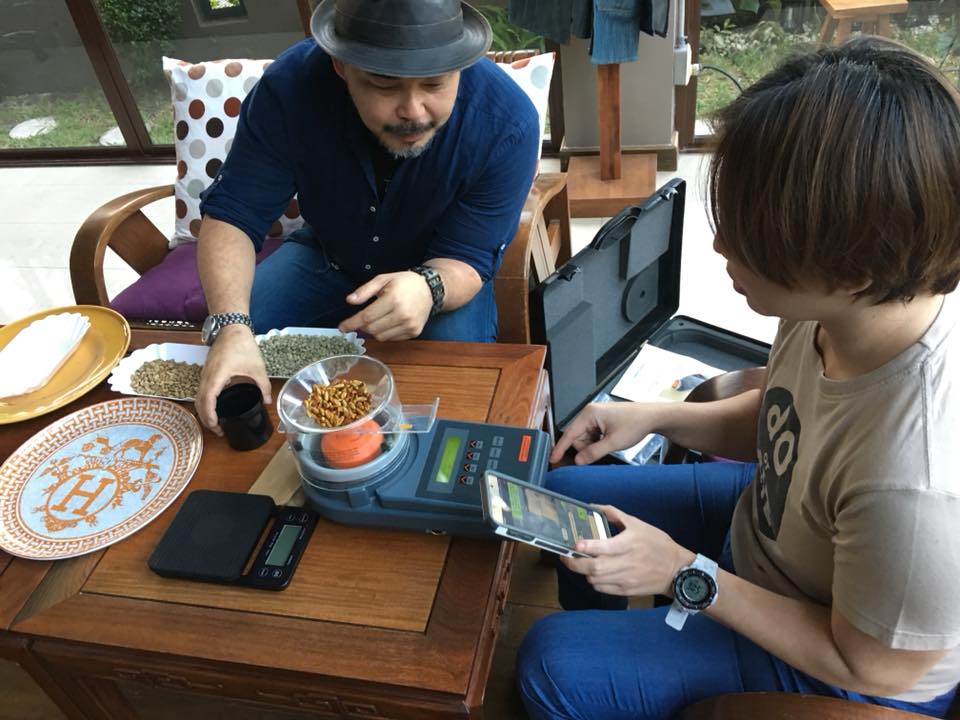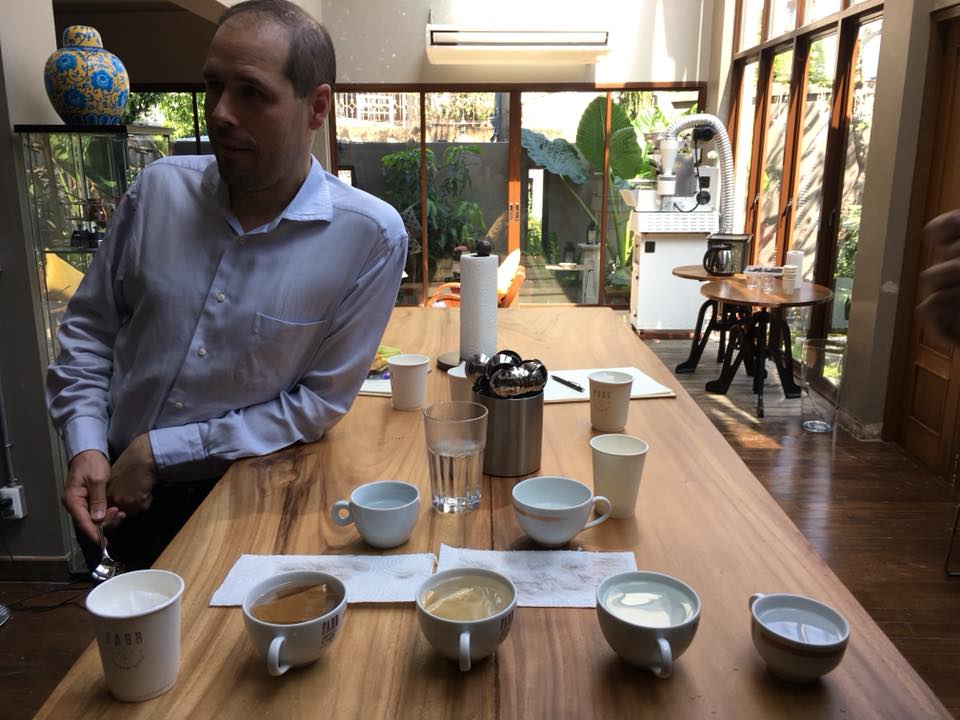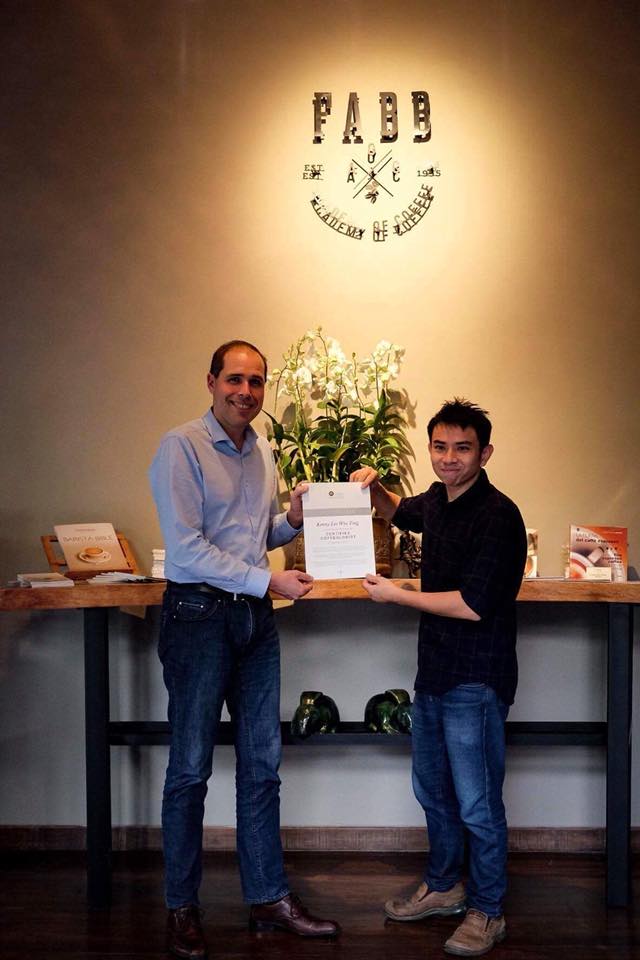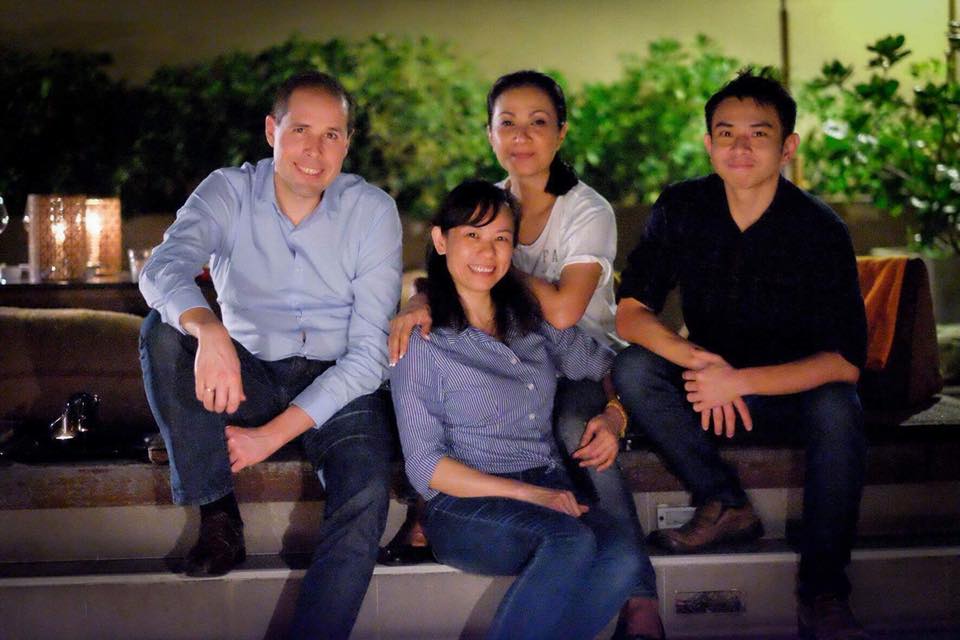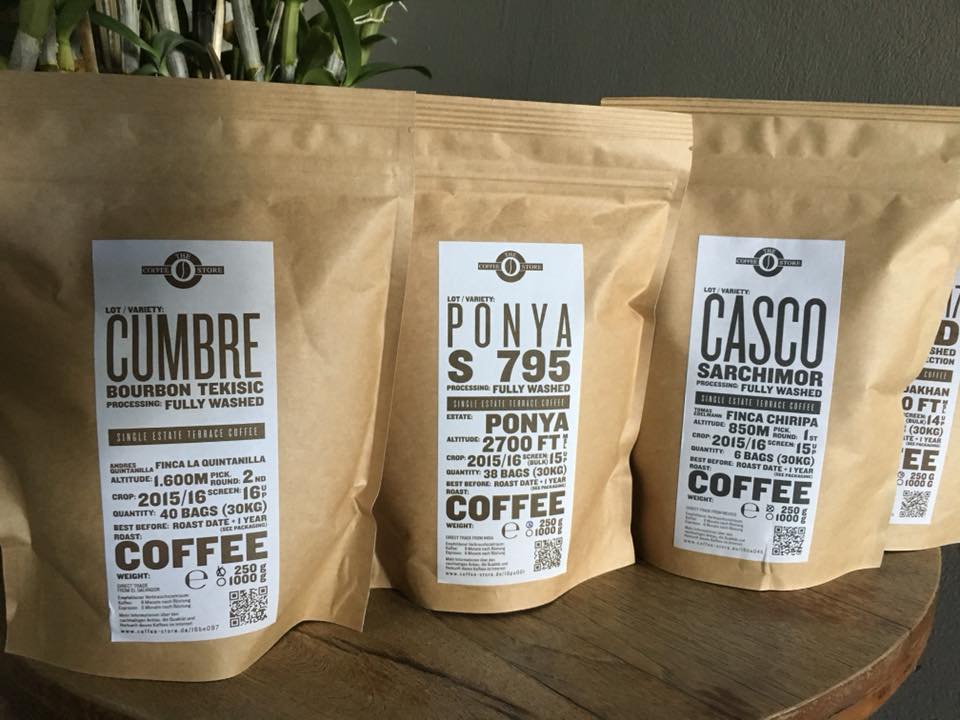Certifying our Coffeologists
Greatest gratitude to Dr. Steffen Schwarz for his intense training and advance guidance in my Certified Coffeologist Course. I think his Coffeologist program—like no other—is the black horse of the entire coffee education industry. And he doesn’t stop at coffee. He has embedded large amount of relevant information that touches on many fields such as botany, microbiology, geometry, materials science, physiology, medicine, chemistry, and climate studies in his class and learning material. No matter how many questions and doubt I have for some of his claims, I can eventually be convinced with a rational and scientific answer.
Dr. Schwarz can be strict in breaking rumours, untested theories, and pseudo-scientific claims in the specialty coffee industry while providing, in their places, an approach that is based on scientific principles which allows us to see coffee from many angles—ones that are closer to nature—and gain better understanding of it as a species.
On the other hand, in his classes, there’s a strong underlying spirit of Humanism. Touching on the historical trail of how mankind use and appreciate coffee with a diverse and humanistic perspective. He believes that preferences and cultural differences in coffee consumerism should not be based on the rights and wrongs, the should(s) and don’ts of to the so called specialty coffee standards, but to address coffee from an open- minded, at the same time, less biased, point of view in order to make collective improvements.
The Coffeologist courses describes human coffee sensory through evolution theories, systematically mapping the geographic, physiological, and cultural differences. Further breaking the absolute standards of good and bad gastronomical experiences, it argues that sensory balance isn’t just about the balance of our perceived acidity, sweet, bitter, saltiness, umami, and fat in terms of their strength and qualities, but more emphasis should be on the relative collective memories and early adaptation of taste from different ancestries. A historic chain of taste that determines what we like and dislike in terms of taste.
I find course like this very rare in the current coffee industry, one that is independent of trendy values, but develops on progressive scientific findings and theories, at the same time, retaining the fun of learning coffee. And it isn’t all about the theories, they have created their own unique tools for education and coffee brewing devices nowhere else to be found on the market. They provide practical solutions for coffee farmers, further testing findings through real-life experiments.
Think four-year old green beans roasted without a taste of woodiness, but matured taste on top of its original characters. Think advanced flavour profiling before the coffee trees are even planted. Think Liberica coffee species, the underdog of the specialty coffee industry. After Dr. Schwarz’s special processing methods, it can present amazingly strong fruitiness but clean and sweet cup. Think outside of the existing brewing techniques and game plans, but to start back from the source, what do we want out of coffee extraction? Design, from grounds-up, extraction equipment that can fulfil—not anyone else’s but—your purpose!
I can’t say Coffeologist is for everyone, it goes against many existing specialty coffee references, but it definitely contains vast amount of valuable knowledge and resources that does more than just giving you the fish. Those who are interested can look up Coffee Consulate and their courses. In Asia, FABB Academy of Coffee; Bangkok and Wah Shing Coffee 華盛咖啡; Hong Kong both have courses available.
— Translated from Kenny’s post by Raven —
